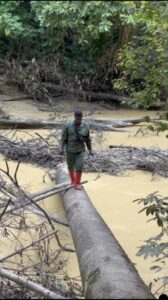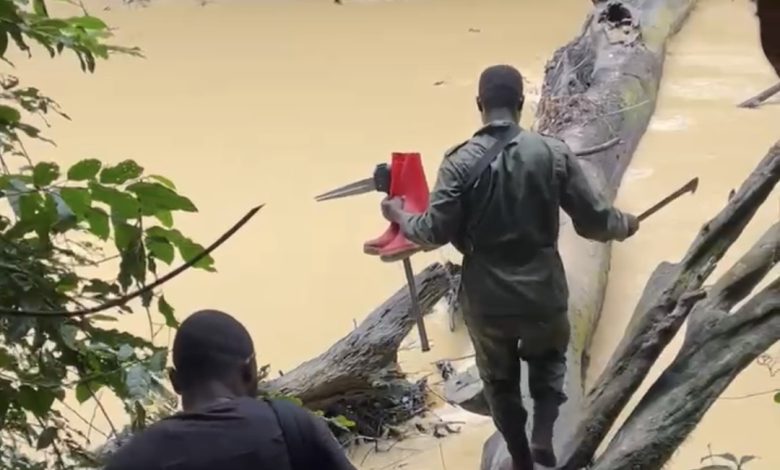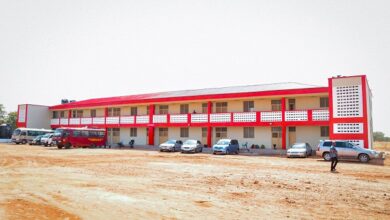The Tarkwa Nsuaem municipality in Ghana is home to a thriving mining industry, which has played a significant role in the region’s economic development. However, the environmental cost of these mining activities has been significant, with the River Bonsa bearing the brunt of the impact. As the main source of water for the Bonsa Water Works Company, the degradation of this vital waterway has had far-reaching consequences for the local communities.

One of the most pressing issues is the pollution of the River Bonsa. Mining operations in the area have led to the release of heavy metals, such as mercury, lead, and arsenic, as well as other hazardous chemicals, into the river. This contamination has rendered the water unsafe for drinking, fishing, and agricultural use, posing a grave threat to the health and livelihoods of the local population.
Furthermore, the mining process has also contributed to the sedimentation and siltation of the River Bonsa. The extraction of minerals and the disturbance of the landscape have resulted in increased erosion, leading to the river becoming shallower and more turbid. This has had a detrimental impact on the river’s ecosystems, with many aquatic species struggling to survive in the degraded environment. The loss of biodiversity has had a ripple effect, disrupting the delicate balance of the local food web and undermining the sustainability of traditional fishing and farming practices.
The reduced water availability in the River Bonsa is another pressing concern. The mining activities have directly impacted the quantity of water available, as the extraction of water for use in operations and the disruption of natural water flows have led to lower water levels, particularly during the dry season. This has exacerbated the challenges faced by the Bonsa Water Works Company in providing a reliable and consistent supply of clean water to the surrounding communities.

The consequences of these environmental impacts have been far-reaching, extending beyond the immediate effects on the river itself. The contamination of the water and the decline in aquatic resources have had serious implications for the health and well-being of the local population. Exposure to the polluted water has been linked to an increase in waterborne diseases, contributing to a deterioration of public health and placing an additional burden on the region’s healthcare system.
Moreover, the degradation of the River Bonsa has had a significant socioeconomic impact on the local communities. Livelihoods that are heavily dependent on the river, such as fishing, farming, and other water-based activities, have been severely disrupted, leading to increased poverty and food insecurity. The loss of access to clean water has further compounded these challenges, undermining the overall resilience and sustainability of the region.
In order to address these pressing issues, a comprehensive and collaborative approach is required. Stricter environmental regulations, improved mining practices, and greater investment in water treatment and ecosystem restoration efforts will be essential in protecting the River Bonsa and ensuring a sustainable water supply for the Tarkwa Nsuaem municipality. Engagement with the mining industry, government agencies, and local communities will be crucial in developing and implementing effective solutions that balance economic development with environmental stewardship.

The plight of the River Bonsa serves as a stark reminder of the delicate balance between human activities and the natural environment. As the Tarkwa Nsuaem municipality continues to grapple with the impacts of mining, it is imperative that a sustainable and equitable path forward is charted, one that prioritizes the protection of the region’s vital water resources and the well-being of its people.
Writter: Peter Kwasi Akomatey (Certified Taxonomist By Kew Royal Botanical Gardens London)






